Can Hamsters Have Pickles?
Little cute hamsters are so curious by nature. They want to eat everything that attracts them. So it’s essential for responsible pet owners to know what foods are healthy and safe for their tiny pets. A general question often asked is, Can Hamsters Eat Pickles?
No, it is a quick response to the query.
It is not advisable to feed pickles to your hamsters. Pickles include vinegar, salt, and spicy flavors. These might be dangerous for the health of your hamster. Furthermore, pickles contain acid, which might cause stomach problems in your hamster.
This detailed article will give you complete knowledge about the possible risks related to pickles. Also will give you information about healthier substitutes to give your hamster a balanced diet.
Hamster Breeds and Dietary Needs
There are many breeds of hamsters. Roborovskis, Syrians, and Dwarfs are common breeds of hamsters. Each hamster has different nutritional needs.
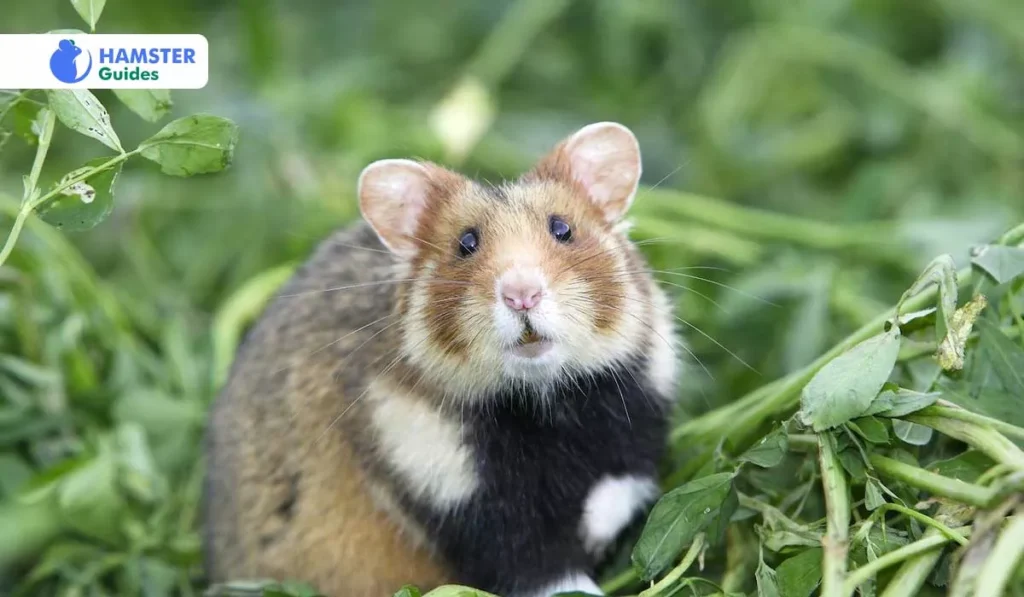
It’s important to take into account the following nutritional values while feeding your hamster:
Related Resource: Can Hamsters Have Walnuts?
Can Hamsters Eat Pickles?
Cute and adorable little pet hamsters are wonderful companions. They have unique nutritional requirements because they are extremely sensitive by nature. Having the wrong kind of food can lead to different health issues or even potential death.
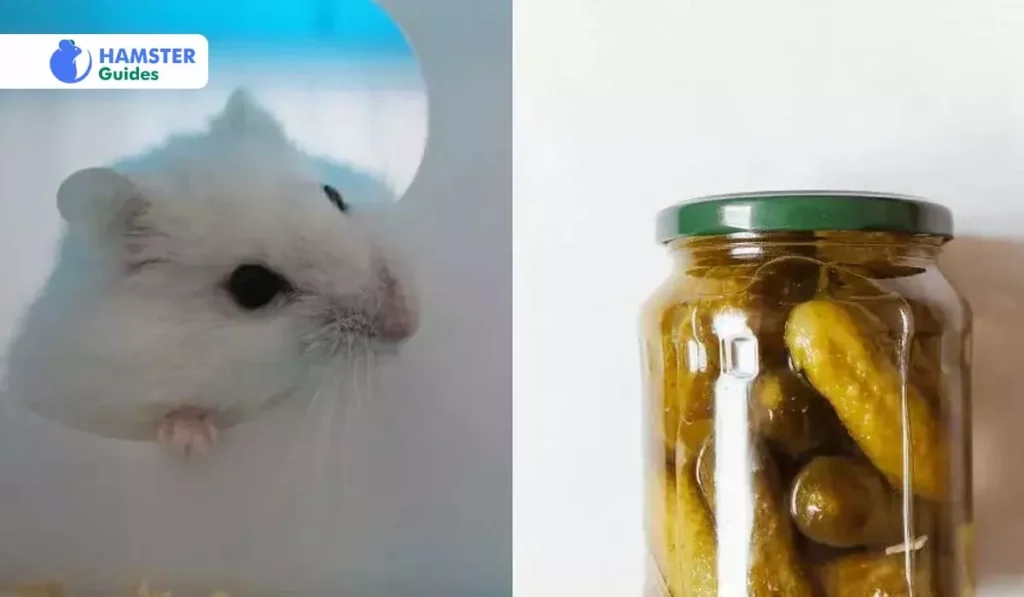
Digestive problems, cardiac issues, and anxiety are the common ones. Below is a comprehensive view of pickles’ nonsuitability:
Why Are Pickles Bad for Hamsters?
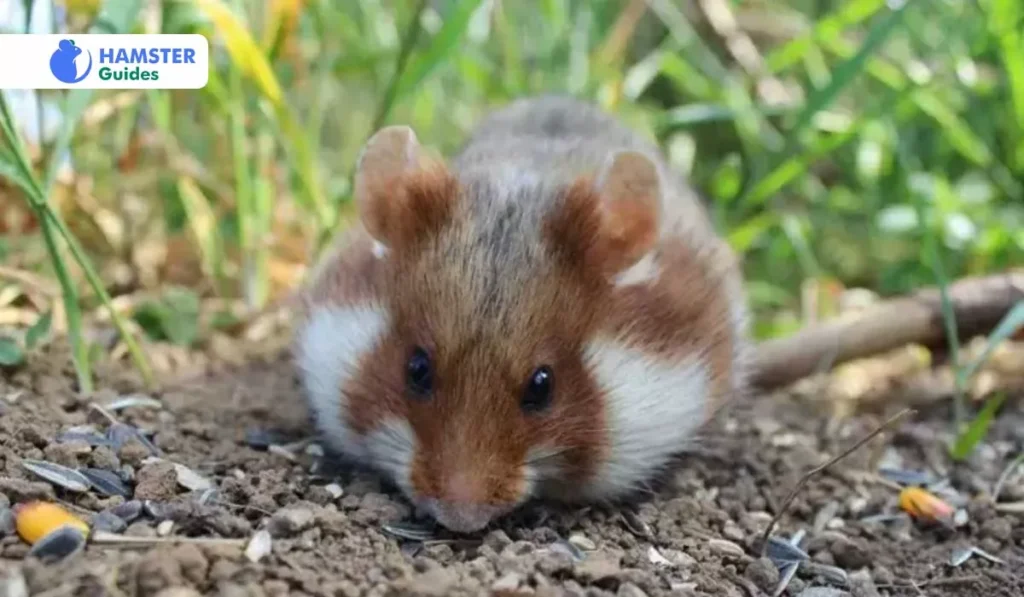
These are some reasons hamsters shouldn’t eat pickles:
Spices: A variety of spices included in pickles may be harmful to the hamster’s health.
Acidity: Pickles have a high acidic content, which can lead to gastrointestinal distress and stomach issues in hamsters.
Vinegar: High acidic vinegar is the main content in Pickles, which may lead to digestive issues in hamsters.
High Salt Component: pickles contain high amounts of salt. Which can lead to diseases such as kidney problems and dehydration in hamsters.
Related Resource: Can Hamsters Eat Raisins?
Sodium Content Comparative Analysis between Cucumbers and Pickles
| Sodium Content | Cucumber | Pickle |
| Sodium per slice | 0.14 mg | 283 mg |
| Sodium per gram | 0.02 mg | Varies |
Sodium Difference – 202.86 times more sodium in pickles
Bonus information: To observe your hamster’s response add different items to their diet slowly and in limited amounts.
What Are the Alternatives?
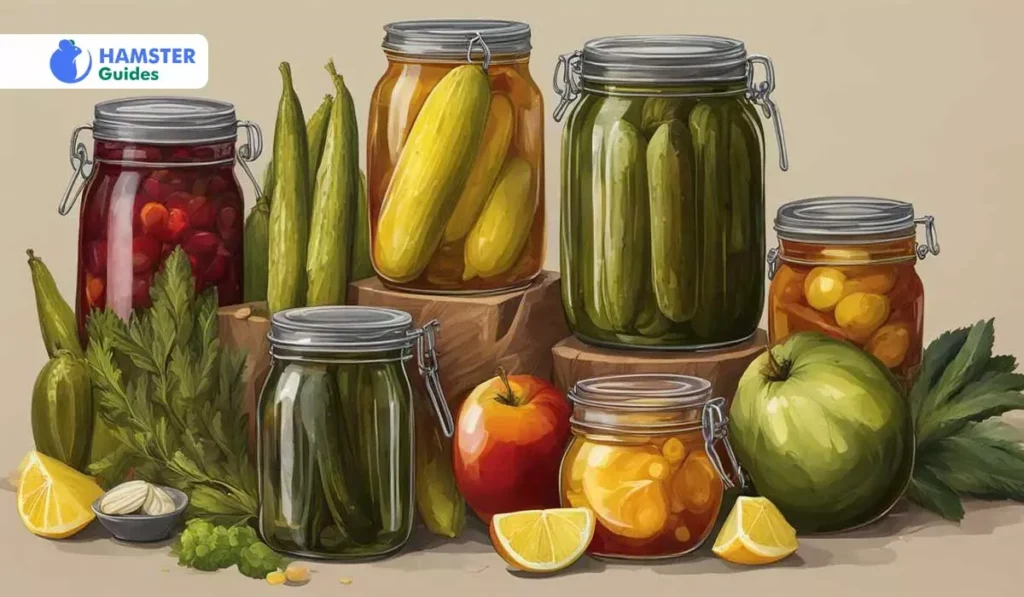
There is a wide variety of vegetables and fruits that are suitable for hamster consumption. The following are some of them:
Spinach: Spinach is a great option for hamsters. As it contains vitamins A and C, iron, and fiber,
Cucumbers: Cucumbers are rich in vitamins K and C with low calories. They are a great source of water for your hamster.
Carrots: Vitamins A and C and fiber are found in carrots. Because of its high sugar content, always give it in a limited amount to your hamsters.
Apples: Apples are rich in vitamins and fiber. So it’s the best choice for hamsters. Always remove seeds and core before giving it to your pet.
Grapes: Antioxidants and vitamins C and K are found in grapes. Before feeding, it’s necessary to remove their seeds.
Related Resource: Can Hamsters Eat Sugar Snap Peas?
Feeding Fresh Cucumbers – A Safer Alternative
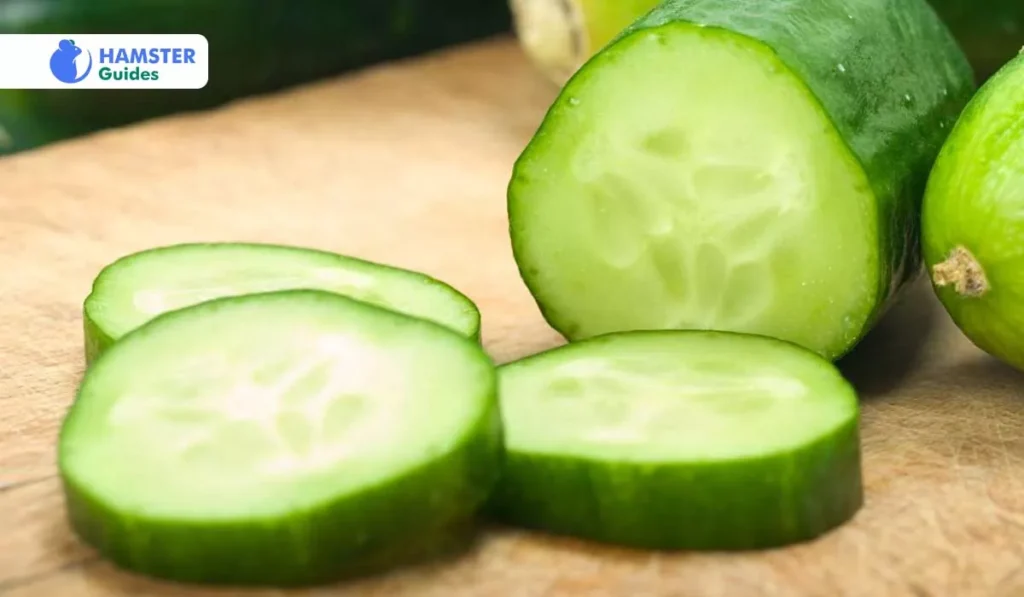
Syrians, Roborovskis, and other large hamster breeds can take one to two fresh cucumber slices weekly. Meanwhile, Dwarfs have to be restricted to not more than one piece per week. Fresh cucumbers are rich in vital nutrients. So it’s a healthier choice as compared to pickles.
Overall Feeding Recommendations
Hamsters have a very sensitive digestive system. However, you have to be extra careful while feeding them. So new foods should always be added and in moderation. Also, observe them for any possible reaction like stomach upset, vomiting, diarrhea, or changes in eating habits. Stop giving the new food to your hamsters if you notice any of them. Then, contact your vet for further advice.
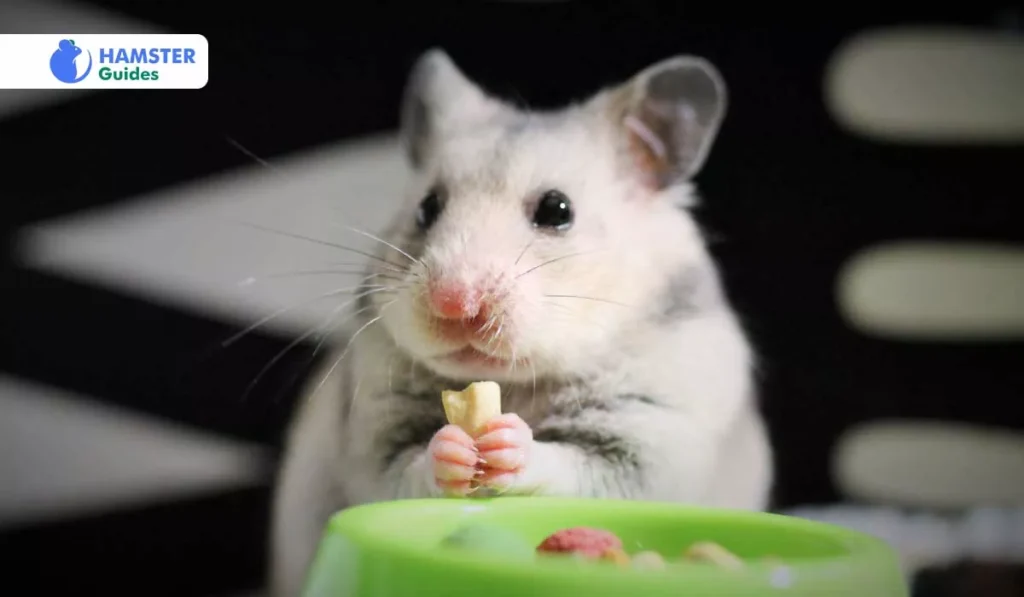
Giving a balanced diet to your hamster is crucial to fulfill all their nutritional requirements. There are certain foods that are good for hamsters and others that may be bad for their health. Let’s examine good and bad foods:
Safe Foods:
Harmful Foods:
Bonus Information: Commercial hamster food pellets should always be the main source of Nutrition for hamsters.
Nutritional Values: Cucumbers vs. Pickles
Let’s examine the nutritional differences between cucumbers and pickles to find the difference between them. A cucumber slice offers vital nutrients like minerals, vitamins, and water. However, a pickle spear has roughly 404% more sodium than its fresh piece.
Nutritional Values of Cucumbers and Pickles (per 7-gram slice)
| Nutrient | Cucumber | Pickle |
| Calories | 0.7 | Varies |
| Fat | 0.011 grams | Varies |
| Protein | 0.041 grams | Varies |
| Water | 6.77 grams | Varies |
| Fiber | 0.049 grams | Varies |
| Carbohydrate | 0.151 grams | Varies |
| Sugars | 0.097 grams | Varies |
| Iron | 0.015 mg | Varies |
| Calcium | 0.98 mg | Varies |
| Phosphorus | 1.47 mg | Varies |
| Potassium | 9.52 mg | Varies |
| Vitamin B-6 | 0.004 mg | Varies |
| Vitamin C | 0.224 mg | Varies |
Health Concerns and Risks
Foods high in salt, such as pickles, might cause hamsters to get dehydrated, which may disturb digestive disorders and cause diarrhea. To avoid further issues, these medical conditions require rapid veterinary attention.
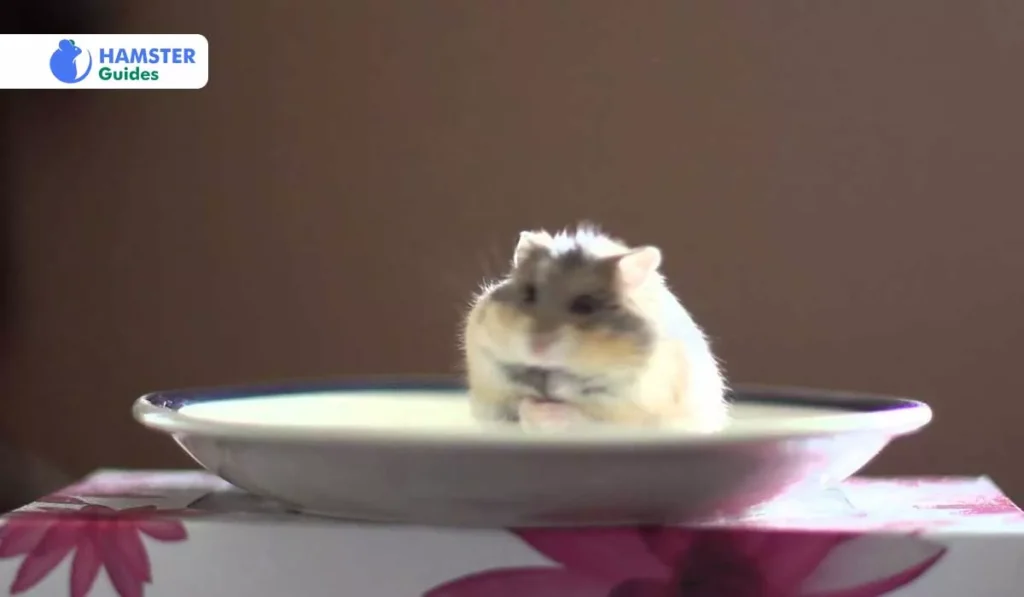
For the well-being of your hamster, always keep an eye on their diet and water. Pickles can be harmful to hamsters and have the following effects on them:
Related Resource: Can Hamsters Eat Plums?
The Fermentation Process and pH Scale
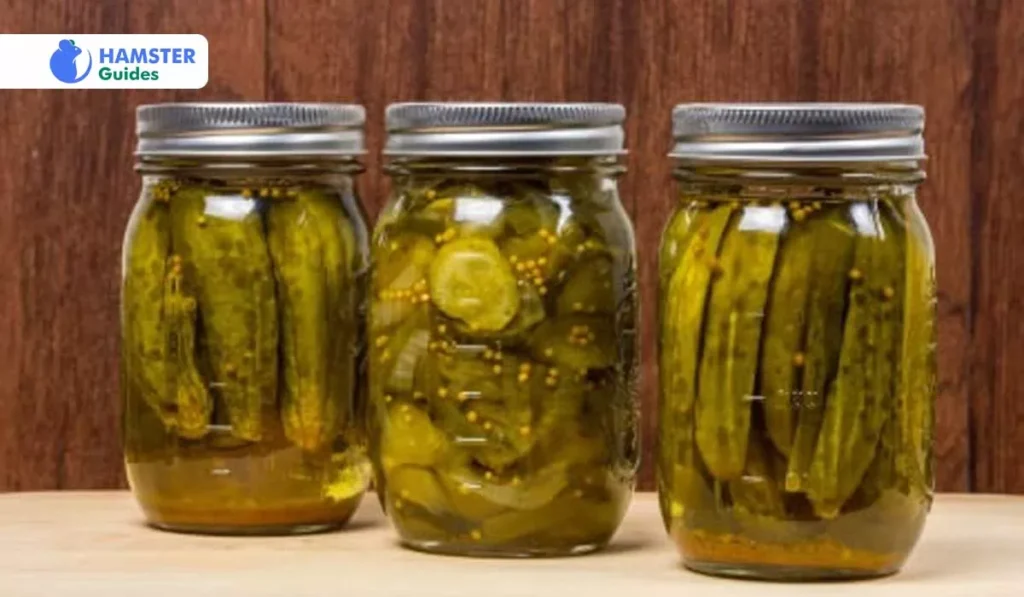
Foods such as pickles and cucumbers require careful consideration. Knowing the fermentation process and its effect on a hamster’s digestive tract is important. These contain high amounts of salt and acidity. Overconsumption can cause cardiac and stomach problems.
Extra information: Consult a veterinarian immediately if you observe any illness signs or behavioral tendencies in your pet.
Stress Management in Hamsters
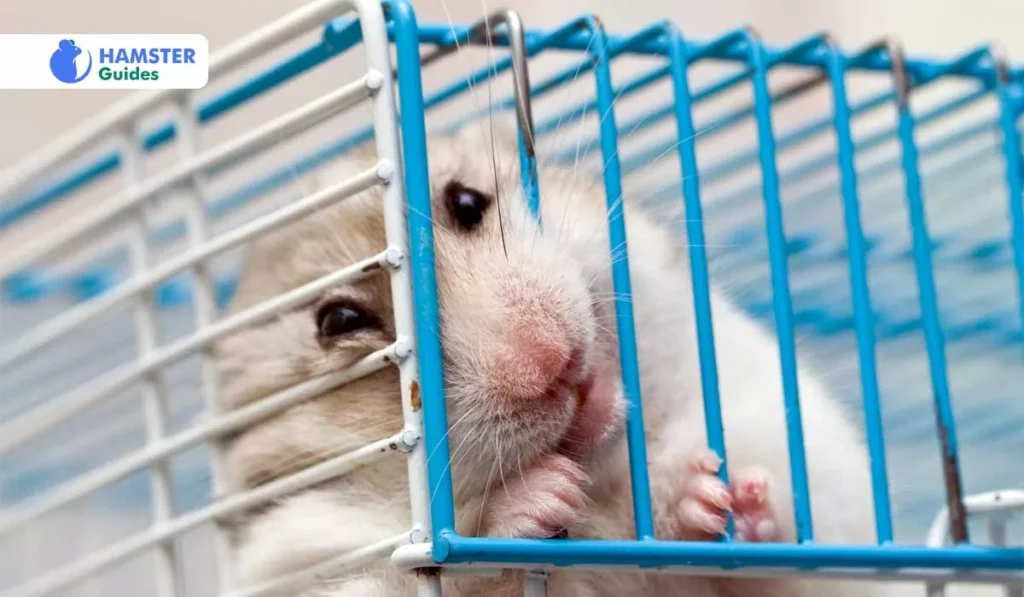
Hamsters are delicate and sensitive animals. They can be stressed out by a number of matters. Change in their diet is one of them. However, creating a peaceful environment and Providing a balanced diet can reduce stress. It also helps to improve their overall health.
Related Resource: Can Hamsters Eat Sweet Potatoes?
Water Management and Hydration
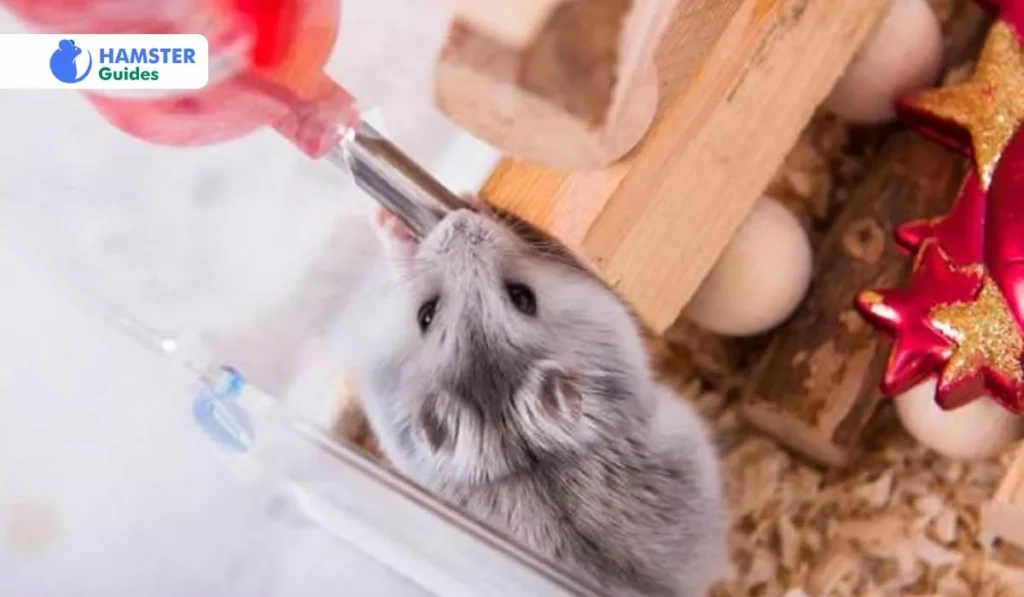
It is necessary for hamsters to be hydrated. Drinking enough water is crucial for their good health. It is advised to use a water dropper or bottle. It’s good to supply fresh and clean water all the time. Always avoid giving high-water-content foods to your pets, as they can lead to overhydration.
Cucumber Varieties and Recommendations
Cucumbers are safe for hamsters to eat. But always give them cucumbers in a limited amount. Always choose low-salt foods for them to prevent health issues. For hamsters’ health, always go with a balanced diet. Vegetables and fruits are healthy options to add to their diet. A well-balanced diet is essential for a hamster’s well-being.
For your hamster’s general health, it’s crucial to slowly start new foods, and observe them for any reactions. Also, provide them with a well-balanced diet. To avoid spoilage, always remove uneaten foods from their cages.
The Final Words
Knowledge about the nutritional content of different foods, such as pickles and cucumbers, is necessary. It’s crucial for the health of your hamster. Always consider the dangers associated with high-salt items while adding a meal to your hamster’s diet. You must feed your hamsters according to the recommended amounts.
Monitor their water consumption. Providing them with a tension-free environment is necessary. These are important for your hamster’s health and well-being. Always consult the vet if you have any questions about your pet. As long as you abide by these rules, you can enjoy a happy and healthy pet.

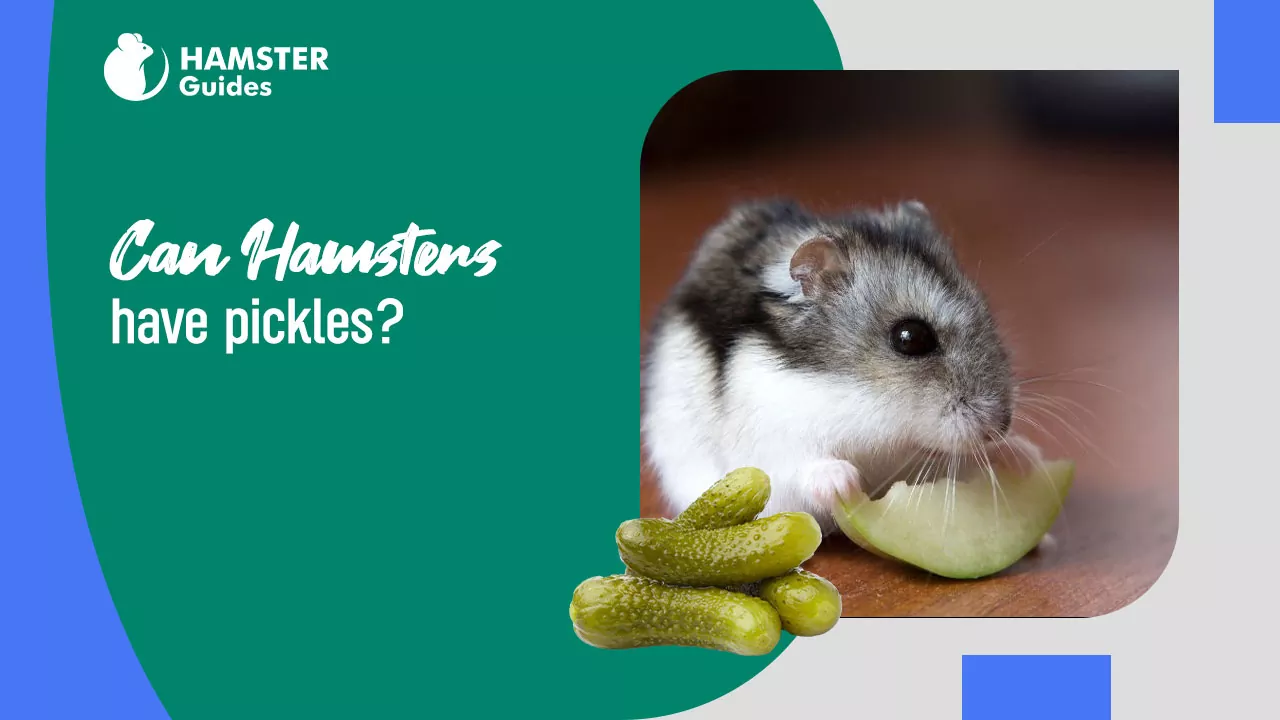







Leave a Reply